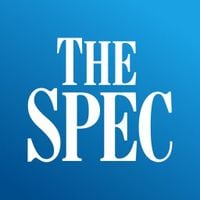In a time of significant geopolitical upheaval, Canada is reevaluating its international relationships and trade policies, especially in light of the ongoing tensions with the United States. According to Canada’s Foreign Minister Melanie Joly, the country has been "over reliant on the US for too long," and is seeking to forge closer ties with the UK and the EU. "We are the most European of all non-European countries," Joly stated in an interview with the BBC on May 7, 2025. Her remarks come on the heels of a meeting between Prime Minister Mark Carney and US President Donald Trump, where they discussed a potential new partnership amidst a backdrop of strained US-Canada relations.
The tension has escalated in recent months due to Trump’s imposition of tariffs on Canadian industries, including auto, aluminum, and steel. These tariffs, which are as high as 25%, have caused widespread anxiety among Canadians, making trade a pivotal issue in the recent federal election. Joly emphasized that "some have lost their jobs, and many families are affected," underscoring the urgency for the Canadian government to defend its citizens against these economic pressures.
As Canada prepares for a review of the Canada–U.S.–Mexico trade agreement, Joly and Carney are advocating for a new approach that prioritizes Canadian sovereignty and economic resilience. Joly noted that while the meeting with Trump was a step towards a "fresh start" in US-Canada relations, the unpredictability of the White House remains a concern. She stated, "We know that there is a lot of unpredictability coming out of the White House, and we know that we have to be ready and hold steady."
In a broader context, Canada’s pivot towards Europe and other global partners is seen as a strategic move to counterbalance the uncertainties posed by the US administration. This shift is not merely political; it reflects a historical moment where Canada can redefine its place in the world. The recent federal election highlighted a growing sentiment among Canadians that the country should not depend solely on its southern neighbor for trade and security.
The geopolitical landscape is further complicated by the ongoing conflict in Ukraine and other global tensions, which have raised concerns about the stability of international institutions. As history professor David O’Keefe notes, "Without a doubt, we certainly have to be much more aware of the possibility of a larger-scale conflict than we’ve seen in many, many years." This acknowledgment of potential threats is prompting Canada to reassess its defense strategies and international alliances.
Mark Carney’s first official trip as Prime Minister was to Europe, a significant departure from the traditional focus on Washington. During this trip, he pledged Canada’s involvement in the European Union’s military procurement efforts, signaling a commitment to strengthening defense ties with European allies. This move is seen as essential for ensuring Canada’s national security in an increasingly unpredictable world.
Canada's historical ties with Europe, particularly stemming from its role in World War II, are being rekindled as the country looks to bolster its international standing. The war marked a pivotal shift for Canada, moving away from British dominance and towards a more integrated North American and European identity. O’Keefe highlights the importance of this legacy, stating, "The war signaled the pivot out of the orbit of the British Empire and into more of a North American vision."
However, the current geopolitical climate demands a careful balancing act. Canada must navigate its relationship with the US while simultaneously strengthening its ties with other nations. The need for economic justice and environmental sustainability is becoming increasingly urgent, as the effects of climate change and economic inequality become more pronounced. Canada’s renewed trade policy must reflect these priorities, focusing on ethical wealth creation and environmental responsibility.
Joly’s comments about wanting to be closer to Europe resonate with a broader public desire for a diversified trade policy that does not rely solely on the US. The recent Canadian election underscored this sentiment, as voters expressed their concerns about job losses and economic instability linked to US tariffs. As Joly stated, "My job and the prime minister's job is to make sure that we defend them," referring to the need to protect Canadian workers and families.
Looking ahead, Canada has the opportunity to strengthen its relationships not only with Europe but also with emerging economies in the Global South. This approach aligns with the need for a more equitable global economic system, one that prioritizes environmental justice and cooperation. By embracing a new internationalism, Canada can build alliances that promote rights-based multilateralism and trade.
The upcoming G7 summit in June 2025 will provide a platform for Canada to assert its leadership on the global stage, particularly as it invites King Charles III to officially open parliament later this month. This royal visit is seen as a clear signal of Canada’s sovereignty and commitment to its historical ties with the UK.
As Canada grapples with its future in a rapidly changing world, the focus must remain on fostering a resilient economy that can withstand global shocks. The lessons learned from the past, particularly from the Second World War, should inform Canada’s approach to international relations and trade. By prioritizing ethical and sustainable practices, Canada can navigate the complexities of modern geopolitics while ensuring the well-being of its citizens.
Ultimately, Canada’s path forward is one of opportunity. The ongoing reevaluation of its trade relationships and international partnerships presents a chance to redefine its role in the world, moving beyond dependence on the US and towards a more equitable and sustainable future.





